Skin: Eczema and psoriasis (ages 11-13)
Good Skin Knowledge lesson plan
Time: 45 min
Objective
Students will be able to:
Provide basic explanation about how the immune system relates to eczema and psoriasis
State what a trigger is
Learn that eczema and psoriasis are not contagious
Learn at least one type of treatment for eczema and psoriasis
Materials
Pencils
Assessment
During Introduction to New Material, assess students’ understanding of material by asking review questions and asking students to summarize how psoriasis occurs.
During Independent Practice, walk around and check students’ work, and see if they need any assistance or clarifications.
During Closing, assess students’ grasp on the material by seeing if they were able to successfully complete the crossword puzzle.
Opening
2-3 minutes
Ask students if they ever get itchy skin, and what things usually makes them itch. If students are unresponsive, ask if they have heard of eczema or know what it is.
Explain, “Today we are going to learn about eczema and psoriasis; two common skin conditions that are caused when something called our immune system gets confused.”
Introduction to new material
20-25 minutes
Materials: Cupcake Conundrum handout (enough for class)
Ask students if any of them have gone trick-or-treating. Some students may not celebrate Halloween, say something like “Or can anyone tell me what their favorite dessert is?”
Say, “You dig through your bag because you want your favorite candy to satisfy your craving. You find it and then keep eating it. You eat so much candy your stomach hurts. Sometimes we call that, “too much of a good thing.” Well, eczema can sort of be thought of in the same way.”
Explain:
We all have something called an immune system that works to protect us from bad stuff, like germs and sicknesses—which is a good thing.
But sometimes our immune system works too hard to protect us, overreacts, and ends up keeping out good things too.
This causes a skin reaction, known as eczema, or dry, itchy skin. Sometimes you can get a rash too.
It’s kind of like eating all that candy and getting sick, too much of a good thing—too much protection by our immune system ends up causing itchy skin! Eczema is NOT contagious.
Check for understanding:
So what does our immune system do?
What is eczema?
What can cause eczema?
Is eczema contagious?
Say you want to tell them a brief story. Pass out Cupcake Conundrum handout:
So, I make really good cupcakes, and my friend asked me to make some for his sister’s birthday party.
I said, “Of course!” So he sent me an email with how many cupcakes he wanted and when he needed them by.
I got the email, and it said, “I need 200 cupcakes. Please have 200 cupcakes ready by tomorrow at 10AM to take to my family as a sample.”
I was shocked—that’s a lot of cupcakes! What am I going to do? But I thought, why not? A challenge! So I made 200 cupcakes for the next day at 10AM. I had cupcakes piled-up almost to the ceiling in my kitchen.
When my friend came to pick up the cupcakes, his jaw dropped to the floor. “Why are there SO many cupcakes?! How many are there?!”
I said, “Two hundred, just like you asked.”
He said, “I asked for 200 total but only wanted 20 cupcakes today as a sample for my family. The party isn’t until next week!”
I showed him the email. “Oh no,” he said. “I must have accidentally added an extra ‘zero’ to the number 20. I can’t believe you made so many cupcakes so quickly. I’m sorry. I sent the wrong message.” He took 20 cupcakes that morning, and I ended up with 180 cupcakes piled-up in my kitchen.
Say, “This is how a skin disease called psoriasis works.”
For some people, their immune system sends the wrong message or signal and tells their bodies to make skin cells too quickly. So the skin cells are made in days, instead of weeks, and pile-up too quickly on the surface of the skin.
So in the story, my friend is like the immune system, I am like the body, the kitchen is the skin, and the cupcakes are the skin cells. These piles of skin cells, or what would be the cupcakes in the story, are called psoriasis.
There are different kinds and severities of psoriasis. Psoriasis is a skin disease that is NOT contagious.
Ask if a student or the class can provide a summary of how psoriasis works.
If students don’t know or are unresponsive, summarize by asking questions:
What tells the body to make too many skin cells? (The immune system.)
What does the immune system send to the body? (If the students say “a message,” Make sure to ask, “But what kind of message? Is the message correct?”)
What happens when the message reaches the body? (The body makes too many cells too quickly.)
Tell them that both eczema and psoriasis have something called triggers. Triggers are something that may cause the skin to react, like if you have asthma; maybe exercising or something you are allergic to are triggers for your asthma that can cause an asthma attack.
Some triggers for eczema are sweating a lot, soaps, juice, dust, a cold or flu.
Some triggers for psoriasis are stress, cold and dry weather, a cut, sunburn, or some medicines.
Explain that when the body comes into contact with these things, they trigger, or set off, the eczema or psoriasis.
But don’t worry, neither eczema nor psoriasis are contagious, and both can be treated. There’s no cure, but they can be treated with ointments, creams, or medicines. There are other treatment options too, but you have to see a dermatologist, or skin doctor, to get diagnosed and find out which treatment is best for you.
Check for questions and clarifications. If students then ask how someone gets psoriasis, explain that it’s genetic, which means that someone in your family has had psoriasis or a gene for it. That gene gets passed on to you, and then you get it. You can’t get it from other people, swimming pools, or anything in your outside environment.
Independent practice
10 minutes
Materials: Eczema and Psoriasis Crossword Puzzle worksheet (enough for class), pencils
Say that you are going to pass around a crossword puzzle with clues from things we learned in class. Students can read the clues and try to fill-in the words. They can work in pairs or by themselves.
There is a word bank for the students to use when they are filling out the crossword puzzle.
Walk around and checks students’ work and sees if anyone has any questions or needs clarification.
Closing
5 minutes
Materials: Eczema and Psoriasis Crossword Puzzle worksheet (enough for class) Go through clues and asks class/students for answers. If there is not much time, go through and give the answers to the students.
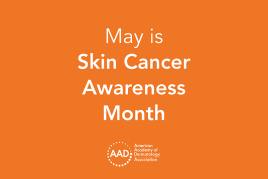 Think sun protection during Skin Cancer Awareness Month
Think sun protection during Skin Cancer Awareness Month
 How to care for your skin if you have lupus
How to care for your skin if you have lupus
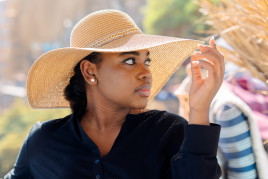 Practice Safe Sun
Practice Safe Sun
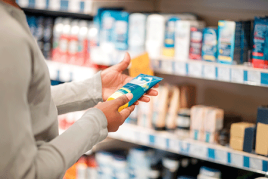 Sunscreen FAQs
Sunscreen FAQs
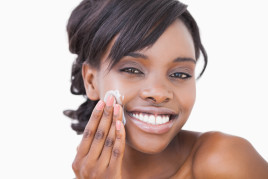 Fade dark spots
Fade dark spots
 Hidradenitis suppurativa
Hidradenitis suppurativa
 Laser hair removal
Laser hair removal
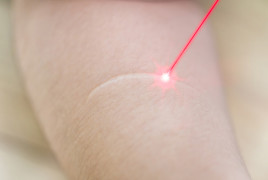 Scar treatment
Scar treatment
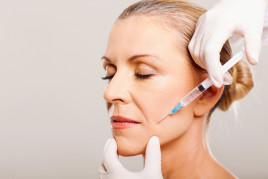 Botox
Botox
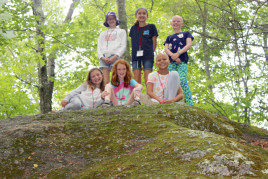 Kids' camp - Camp Discovery
Kids' camp - Camp Discovery
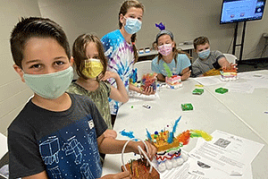 Dermatologist-approved lesson plans, activities you can use
Dermatologist-approved lesson plans, activities you can use
 Find a Dermatologist
Find a Dermatologist
 Why choose a board-certified dermatologist?
Why choose a board-certified dermatologist?